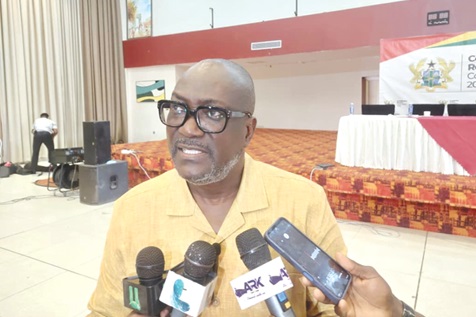Participants in a stakeholders engagement for the review of the 1992 constitution have proposed major constitutional amendments to reflect the current democratic and socio-economic landscape developments.
They demanded significant changes in the 1992 Constitution, the stakeholders said some of the existing laws were "impotent" and "outmoded", which required major amendments to make it effective.
They cited broad appointment powers to the President, including Ministers, which they said undermined the separation of powers and weakened checks and balances; minimum age of 40 to run for President, which did not reflect the 21st century and too much power in the hands of the President, among others
They made the call during the Sunyani zonal stakeholders engagement on the review of the 1992 Constitution in Sunyani last Tuesday.
Proposals
During an open forum, a visually impaired person, George Yeboah, proposed that the country’s Constitution should be amended to provide automatic employment to people living with disabilities (PWDs) after graduation from tertiary institutions.
He said it was extremely difficult for PWDs to gain employment in the country, including the public sector.
Mr Yeboah explained that most of them were highly educated but due to lack of employment, they usually end up on the streets to beg for a living.
Another participant, Jefferson Kwasi Agbotro, proposed that Members of Parliament (MPs) should not be appointed as ministers of state to ensure transparency in governance.
He explained that MPs who enact laws to govern the country should not be made to serve in the executive arm of government.
Another participant, Guggisberg Asirifi-Young, also called for a constitutional reform to limit the President from making some appointments to institutions such as the Electoral Commission, National Commission for Civic Education (NCCE), Commission on Human Rights and Administrative Justice (CHRAJ), Auditor-General, the Judiciary, among others.
He called for the establishment of an independent committee to conduct a search to get qualified Ghanaians to occupy those positions when the need arose.
Another participant, Rita Dickinson, suggested that a law should be passed to compel successive governments to complete projects started by the previous government.
Others called for the inclusion of spot fines without the need for a formal court appearance, adding that under the current system, only individuals were benefitting instead of the state.
They also called for a reversal of the presidential term of office from two terms to one term with a minimum of six years, limit terms of MPs to three terms and the presidential age to a minimum of 21 years.
Engagement
The engagement was to solicit views and proposals from the people in the zone for possible constitutional amendments.
It brought together hundreds of people from a diverse range of institutions to present their views and recommendations to the Constitution Review Committee (CRC) for consideration.
They include academia, farmers, traders, security agencies, teachers, traditional leaders, youth and women groups, associations, industries, civil society organisations, PWDs, among others.
Earlier, the Chairman of the Committee, Professor Henry Kwasi Prempeh, said a number of developments had happened in the governance of the country.

